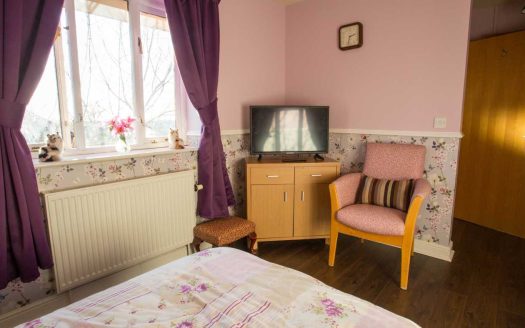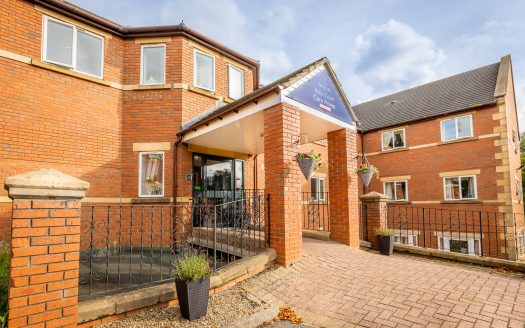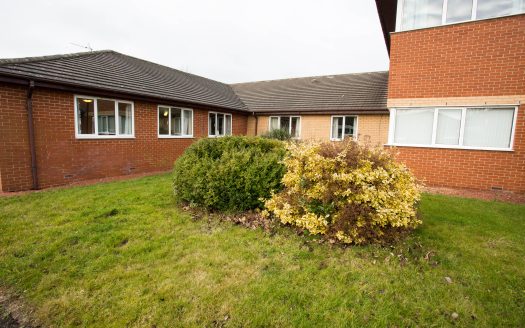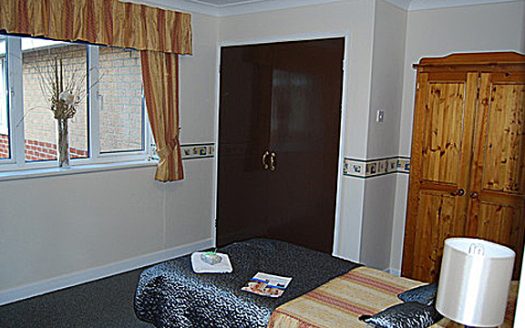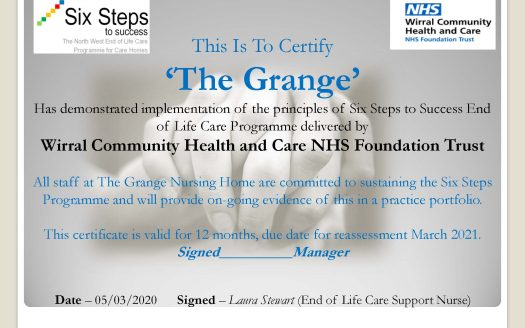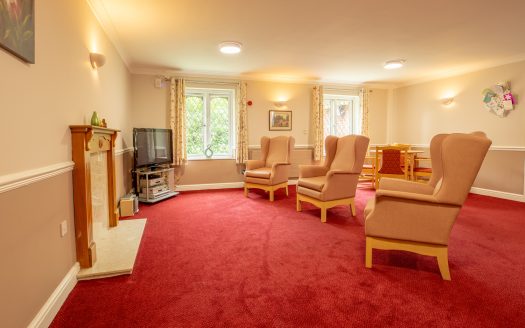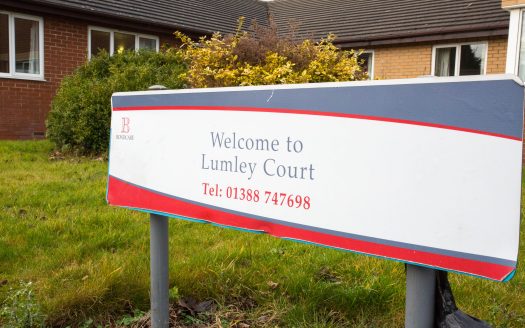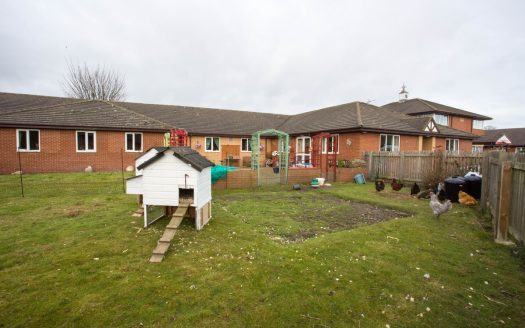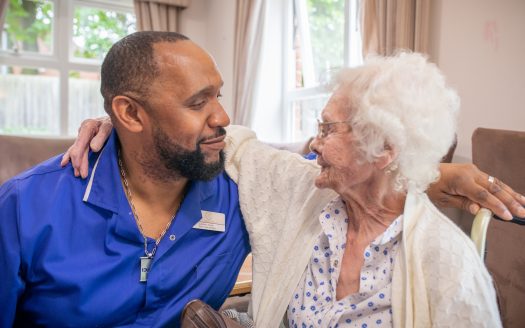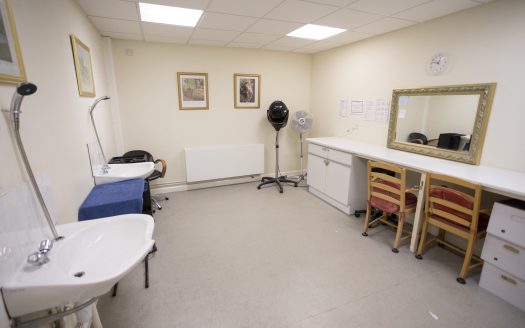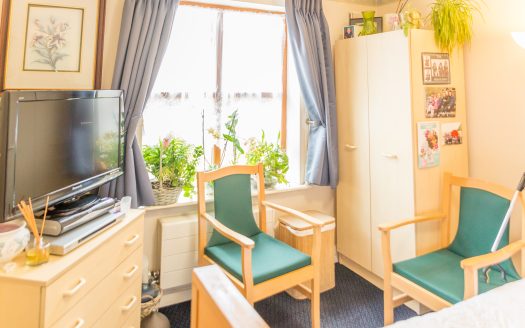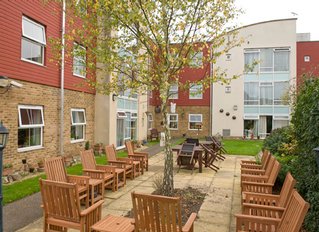Respite Care
Making the move into assisted living can often seem like a daunting process, but at Bondcare Care Homes we make sure it is as comfortable and smooth as possible.
- FAQs
Read some of our frequently asked questions
All residents are entitled to change care homes if their current one isn’t the right fit for them – perhaps they are struggling with the adjustment or the location has hindered their family from visiting as regularly as they’d like. Referring to the terms and conditions of the contract will prevent any problems so that this is a smooth process.
Being surrounded by items from home can allow new residents to feel more comfortable and settled. At Bondcare, we welcome small items of furniture – such as a favourite armchair – and other treasured belongings – including photographs – so residents can personalise their rooms. All electrical items will be PAT tested and furniture will undergo a fire risk assessment to protect the safety of our residents and staff.
Our staff would be happy to show you around the home, but it is always advisable to book ahead to ensure that someone will be available to guide you around and provide you with all of the information you need to know.
Our staff would be happy to show you around the home, but it is always advisable to book ahead to ensure that someone will be available to guide you around and provide you with all of the information you need to know.
Visiting one of our homes is easy, either make an appointment with the home manager or simply drop in to be shown around!
Follow us on Facebook
As well as looking after the people they care for, carers also need to manage their daily lives and look after their own wellbeing. Respite care is a crucial part of ensuring carers can combine their personal lives and their caring duties, and Bondcare are very proud to provide respite care across our network of care homes in the UK.
What is Respite Care?
Respite care is the term given for people taking a break from their caring responsibilities, with somebody else looking after the person you’re caring for for a short while. Respite care can range from a matter of hours to a few weeks – you might have an unavoidable appointment in a morning, for example, or you might be going abroad for a holiday.
Depending on the duration of the respite care, there are different options available. If it’s a matter of hours, then a qualified carer can come round and look after your loved one for a few hours. If respite care is required for days or weeks, then the person could move into a care home where they’ll be cared for until you return.
When Do I Need Respite Care and Why Is It Important?
Carers provide crucial support for vulnerable people, and it’s important that carers are looked after, too. Respite care is used for a variety of reasons; covering for carers when they have other business to attend to such as medical appointments or family commitments, or ensuring that a carer’s patient is looked after when the carer is taking a much-deserved holiday.
As well as being an important resource for the time when carers are unavailable, it’s also important that additional support is available to alleviate some of the pressure. Caring for someone requires round-the-clock availability, and like any job, this can take a toll on a person’s mental wellbeing if they don’t afford themselves some time off. Therefore, respite and recovery care is an important asset to each and every carer and patient; the carer can use the time to take a break or fulfil other obligations, and the patient will still receive the care, support and attention they require.
What Types of Care Are Offered on Respite Care?
Respite care covers a range of specialist care types, ensuring that people with a range of conditions and needs are looked after and cared for when their carer takes a break. Respite care is available in various forms, including:
- Respite care for dementia patients
- Respite care for disabled adults
- Respite care for adults with learning disabilities
- Respite care for the elderly
- Respite care with physiotherapy
No matter the length of the respite care, the person you care for will have all of their needs met and catered for for the duration.
How Long Can Respite Care Last?
Respite care typically lasts between one and two weeks, depending on your needs. Respite care can be made available whenever necessary, whether it’s planned in advance – such as a holiday – or an unplanned situation like a family emergency. The respite care will be provided by skilled, experienced professionals who will take care to continue the hard work of the usual carer, following all of the care receiver’s schedules and routines.
What is the Difference Between Respite Care and Hospice Care?
Respite care is provided mainly for the benefit of the carer – allowing them to take care of themselves or other aspects of their life without the person they care for losing that vital support.
Hospice care is provided for people with terminal illnesses, looking after them until the end of their life. This doesn’t mean that a person receiving hospice care is always confined to bed or has to stay in the hospice itself – people with incurable illnesses may often have spells of feeling well, and at these times they are allowed to leave the hospice temporarily.
When someone is in receipt of hospice care, all their needs are taken care of, from medical requirements to social fulfillment. This type of care is designed to give terminally ill people the best possible standard of living until they pass away.
Who Pays for Respite Care in a Nursing Home? Can You Get Free Respite Care?
Respite care is means-tested, so depending on your situation, you may be able to receive funding from your local council. The means testing can also include the person you care for, so it’s possible that you or they may have to provide a financial contribution to the respite care service.
Carers who work more than 35 hours a week and care for someone with certain benefits may be eligible for Carer’s Allowance. To make a claim for Carer’s Allowance, you need to contact the Carer’s Allowance Unit – you can do so by clicking here.
How Can I Arrange for Respite Care?
Respite care is often arranged as a result of a carer’s assessment. If the assessment of the carer or the person in your care shows that respite care is required, then your local council should arrange for respite care. If you regularly provide care for somebody, then you are entitled to a carer’s assessment.
You can apply for a needs assessment by clicking here – this will put you in contact with your local social services provider so that your requirements can be assessed.
Bondcare have care homes across the country where we can provide the highest standard of respite care. With qualified staff and warm, welcoming residential and nursing homes, we have the perfect environment to welcome the person you care for. You can browse our respite care homes below – please contact your local Bondcare care home to find out more about our respite care services.
Find a Care home providing 24/7 Residential Care, Alzheimer's Care, Dementia Care, Residential Care, Respite Care
View our Homes specialising in Respite Care
- Types of Care
- 24/7 Nursing Care
- 24/7 Residential Care
- Acquired Brain Injury Support
- Alzheimer's Care
- Autism Care
- Bipolar Disorder
- Challenging Behaviours
- Complex Epilepsy Support
- Dementia Care
- Disability Care
- Drug And Alcohol Misuse Care
- Elderly Care
- End Of Life Care
- Head/Brain Injury Care
- Huntington's Disease
- Learning Disability Care
- Mental Health Care
- Motor Neurone Disease
- Multiple Sclerosis
- Nursing Care
- Palliative Care
- Parkinson's Disease
- Physical Disability Care
- Post Stroke Care
- Re-Enablement
- Residential Care
- Respite Care
- Sensory Impairment Care
- Specialist Care
- Substance Misuse Support
- Supported Living
- Young Adults Support
- Younger Adults Care
- Categories
- Long-Term Stay
- Palliative Care
- Recovery Care
- Respite Care
- Short Term Stay
- States
- Cities
- Ashton-under-Lyne
- Barnsley
- Benwell
- Bicton Heath
- Billingham
- Birmingham
- Bradford
- Burton-on-Trent
- Carlton
- Castleford
- Cheltenham
- Cheswardyne
- Cleckheaton
- Dagenham
- Dartford
- Dewsbury
- Doncaster
- Drayton
- Eastington
- Elton
- Feltham
- Fordcombe
- Halifax
- Hayes
- Huddersfield
- Husbands Bosworth
- Ilford
- Kilmarnock
- Leeds
- London
- Luton
- Middlesbrough
- Newbiggin-by-the-Sea
- Normanton
- Okehampton
- Oldham
- Oswestry
- Pontefract
- Romford
- Scunthorpe
- Sheffield
- Shildon
- Shiplake
- Skelmersdale
- Southall
- Southampton
- Southwell
- Stapenhill
- Thamesmead
- Thornton Heath
- Thorpe St Andrew
- Wakefield
- Wargrave
- Washington
- Wednesbury
- Willington, Crook
- Wirral
- Wolverhampton
- Worcester
- Areas
- East Midlands
- Gloucestershire
- London
- North East
- North East|Stockton-on-Tees
- North West
- Scotland
- South East
- South West
- Staffordshire
- West Midlands
- West Yorkshire
- West Yorkshire|Yorkshire
- Wirral
- Yorkshire
- Price High to Low
- Price Low to High
- Newest first
- Oldest first
- Newest Edited
- Oldest Edited
- Bedrooms High to Low
- Bedrooms Low to high
- Bathrooms High to Low
- Bathrooms Low to high
- Default
Abbey Hey Care Home
You can contact Kim Pearce via phone: 0161 624 4115
Allan Court Care Home
You can contact Anthony Grist via phone: 0191 274 1100
Allington House Care Home
You can contact Maureen Massey via phone: 01642 565 839
Amelia House Transitions Residential Service
You can contact Rebecca Jackson via phone:
Ashwood Care Centre
You can contact Roxana Briniza via phone: 0208 573 1313
Beech Court Care Centre
You can contact Mary Zuwaradoka via phone: 01582 439420
Birch Tree Manor Care Home
You can contact Jacqui Foxton via phone: 0151 644 0777
Bracken Tor House
You can contact Sarah Pyne via phone: 01837 55209
Brancepeth Court
You can contact Karen Armstrong via phone: 01388 747 698
Clarendon Nursing Home
You can contact Mathini Navukkarasu via phone: 0208 689 1004
Coppice Nursing Home
You can contact via phone:
De Baliol Care Home
You can contact Danielle Carter via phone: 01670 852 017
Derwent Lodge Care Home
You can contact Vincent Munieza (Carolyn Hope) via phone: 020 8844 2975
Elm Park Care Home
You can contact Lindsay Pargin via phone: 01302 725 272
Fern Gardens Care Home
You can contact Vincent Munieza via phone: 0208 8444 860
Grange Nursing Home, Wirral
You can contact Michelle Robinson via phone: 0151 342 6461
Green Acres Care Home
You can contact Denise Spencer via phone: 0113 248 3334
Hill Lodge Care Home
You can contact Ashleigh Smythe – Osbourne via phone: 01283 542 443
Lilleybrook Care Home
You can contact Kim Dundas via phone: 01242 225790
Lumley Court Care Home
You can contact Julie Gray via phone: 01388 747 698
Moorland Gardens Care Home
You can contact Deborah Adams – Robinson via phone: 01582 439420
Oak Park Care Home
You can contact Paula Whitely via phone: 01924 459 514
Oldbury House Care Home
You can contact Sam Howell via phone: 01453 791 513
Owlett Hall Care Home
You can contact Wendy Johnson via phone: 0113 285 9710
Richden Park Care Home
You can contact Gaby Walsh via phone: 01724 280 587
Southwell Court Care Home
You can contact Sara Scott via phone: 01636 815 599
Springfield Care Centre
You can contact tbc via phone: 01422 351626
The Glynn Living
You can contact Jessa Avail via phone: 020 8832 8600
The Fountains Care Centre
You can contact Jake Thompson via phone: 01924 730 560
The Grange Care Centre, Southall
You can contact Mawuli Mensa via phone: 023 8044 3061
The Links Care Centre
You can contact Alexandru Toasca via phone: 0118 940 2046
The New Barn Care Home
You can contact via phone:
Willow Park Care Home
You can contact via phone:
Frequently Asked Questions:
All residents are entitled to change care homes if their current one isn’t the right fit for them – perhaps they are struggling with the adjustment or the location has hindered their family from visiting as regularly as they’d like. Referring to the terms and conditions of the contract will prevent any problems so that this is a smooth process.
Being surrounded by items from home can allow new residents to feel more comfortable and settled. At Bondcare, we welcome small items of furniture – such as a favourite armchair – and other treasured belongings – including photographs – so residents can personalise their rooms. All electrical items will be PAT tested and furniture will undergo a fire risk assessment to protect the safety of our residents and staff.
Our staff would be happy to show you around the home, but it is always advisable to book ahead to ensure that someone will be available to guide you around and provide you with all of the information you need to know.
Every new resident to the care home will be assessed to ensure they receive the right type of care catered to their individual needs. Following this, a care plan will be created which sets out how the staff at the home will meet those needs for a comfortable stay. Care plans are typically reviewed on a monthly basis and are updated in the event there are any changes.
This will depend on your individual financial situation and care needs. If your finances total below a certain threshold, your local authority can contribute towards your fees – this can differ between countries in the UK, so make sure you familiarise yourself with this first. There are also some benefits options available that care home residents can claim, and the NHS also provides support with nursing care fees, too.
Should residents decide to bring small items of furniture or personal belongings, we are unable to accept responsibility in the event that they are lost or damaged, unless security precautions at the home have been compromised. It is strongly recommended that you arrange suitable contents insurance if you do decide to bring such items along with you.
Recommended by our families
My mum is a resident at this home, the staff are helpful and friendly. Despite her dementia and regular falls, all staff do everything to help with her quality of life. The food is lovely and regular entertainment and activities keep everyone active.
Birch Tree Manor Care Home
Our Associations


Support
Our Company
Get in touch
-
Bondcare House
18 Lodge Road
London NW4 4EF - [email protected]
- 020 8202 2277



